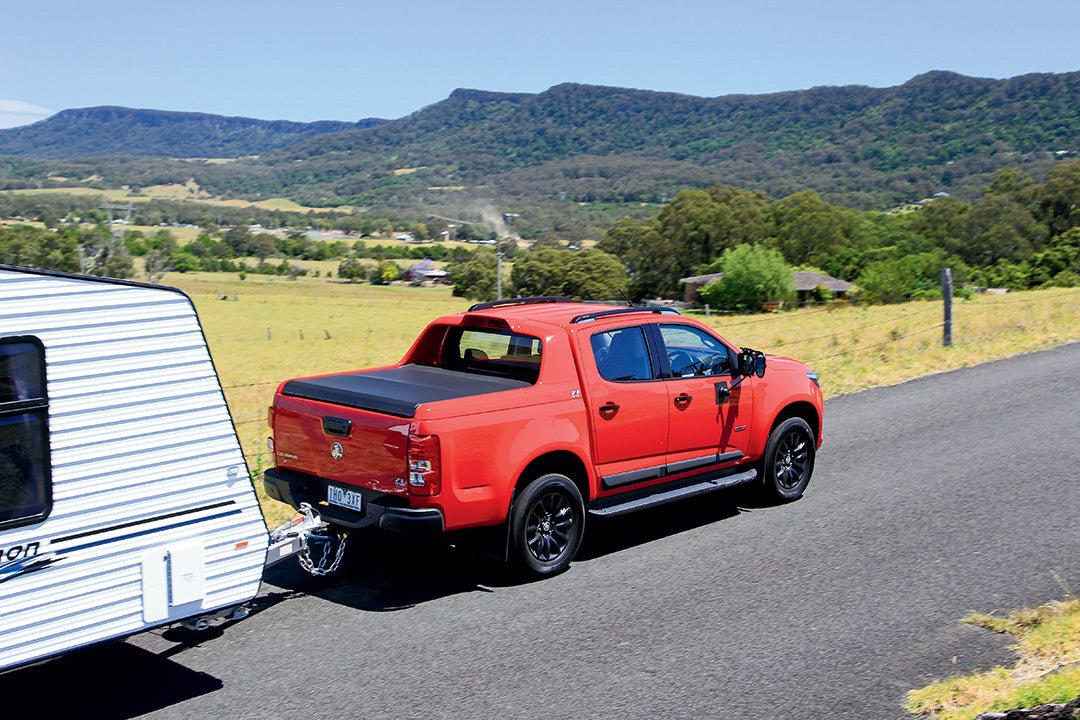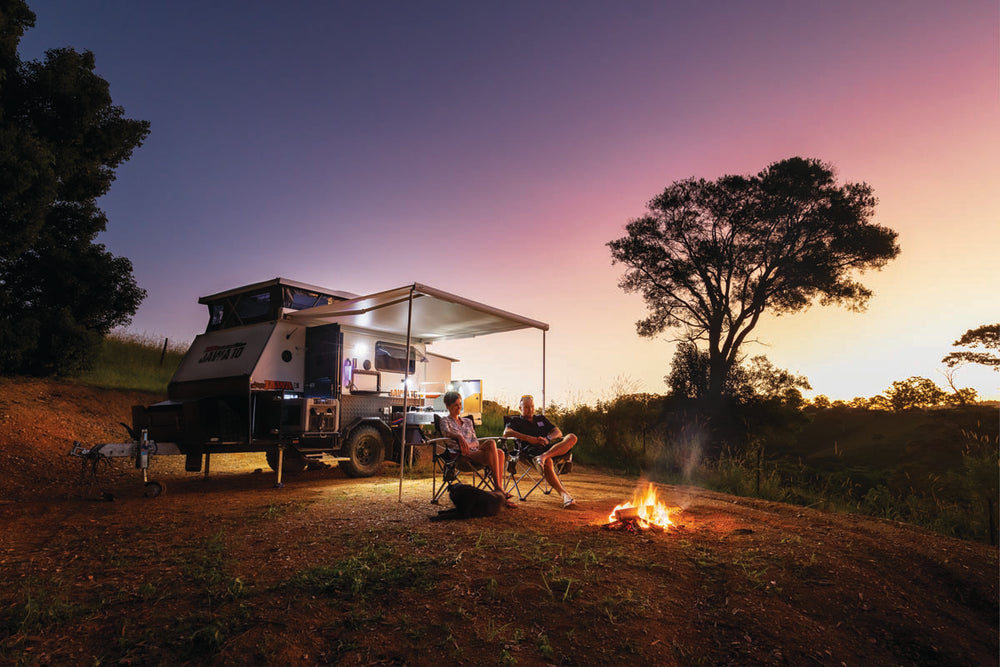

The time has come when your old reliable caravan towing vehicle needs replacement — or you’ve upgraded your caravan, and your towing vehicle just doesn’t pass muster anymore. Whatever the reason for upgrading your towing vehicle, there are a few things you should know before taking the plunge and buying something new or at least new to you.
But what are the best options out there? What about financing? We discuss it all, so you can make the most of your next vehicle purchase.
How much can you afford?
Now let’s crunch some numbers and figure out how much you can comfortably afford to pay each month or fortnight. It’s important to consider insurance, fuel economy and maintenance costs. Using a car loan calculator can help you estimate the amount you'll need. To calculate your loan, you’ll need to provide the interest rate, loan term, and desired loan amount.
Can your vehicle tow it?
When purchasing your first caravan, one of the initial inquiries you must make is about the gross vehicle mass (GVM) (also known as gross vehicle weight rating) of your caravan or RV. If you’ve been caravanning frequently, you probably know this like the back of your hand. However, it is important to ensure that your new vehicle is capable of safely and legally towing your caravan when correctly loaded. When making a shortlist, your new (or new to you) vehicle needs to have a safe towing capability. Otherwise, there’s little point in considering it. This does mean you'll need to know how much additional weight you'll pack into your caravan when fully loaded.
Buying new or used — the pros and cons
Now comes the important decision: should you purchase a brand-new vehicle or opt for a pre-owned one? Indeed, the cost of purchasing a factory fresh vehicle can be quite high, especially if you are an occasional caravanner. When you invest in a brand-new vehicle worth say, $70,000, it’s disheartening to see its value depreciate by $14,000 as soon as you park it in your driveway. However, financing it is more convenient compared to purchasing a used car or vehicle.
When it comes to used vehicles, there are a few factors to consider. Firstly, their residual value tends to be lower compared to new cars. Additionally, they often do not come with a warranty, which is something to keep in mind. Another aspect to consider is that when purchasing from private sellers, there may be some uncertainty regarding their availability and reliability. Given the nature of driving a used vehicle, it’s important to be prepared for potential maintenance or repair expenses that may arise sooner rather than later.

A dedicated vehicle or an all-rounder?
Some of us are lucky to dedicate a vehicle to towing a caravan — though most of us will need something that does the milk run as well as the Nullarbor run. That means looking for a balance between towing capacity, raw performance and creature comforts. Many SUV models come close to ticking all three boxes and can prove cheaper than buying a fully-fledged 4x4 (and when it comes to maintenance, it’s definitely a saving in the back pocket). Read our review of the INEOS Grenadier that has a heart that beats with a 4x4’s mighty thump but is packed into a SUV-style size. If you’re a tradie, a ute could also be a prime candidate for your next caravan towing vehicle, such as the MY24 Isuzu D-MAX.
You also need to consider your kind of caravanning — if you are taking a camper trailer off the beaten track, something with rugged suspension and massive amounts of torque will do. If you’re getting to powered sites over sealed roads, then you could even get away with a large and powerful sedan. It depends on your lifestyle, your needs, and your budget. Whatever you choose, it must be street legal at the very least. Consult your state or territory road authority before moving on to the next step.
Financing your new vehicle
Similar to other significant life purchases, it is probable that you will need to secure financing for your new towing vehicle. You should sift through loans for towing vehicles before committing to a loan package. Additionally, seeking guidance from a car loan broker can expand your options and potentially lead to better deals and interest rates.

Think about pre-approval
Obtaining loan pre-approval has its benefits too. Pre-approval is similar to having a car loan approval, but with the difference that you haven’t found your car yet. You have a window of approximately one to three months to locate a vehicle and complete the financing process. It provides you with a price ceiling that dealers or sellers must meet in order to make a sale. Use this to your advantage! If you approach dealers at the end of the month (ideally, at the end of a calendar or financial year) you can likely twist the screws on price even further — they’ll be itching to make quotas and commissions. By that point, they could be open to knocking off a few hundred (or thousand!) off the price to get you over the line!
Adrian Edlington is PR Manager and Chief car reviewer at Savvy and has a keen interest in personal finance, car loans, electric vehicles and renewable technology.
THE NEXT STEP
If you want to learn the latest caravan news, find the most innovative new caravans and camping gear or get inspired to plan your next adventure on the open road in the Aussie great outdoors, subscribe to our weekly newsletter. We promise to send you only the best content.
Related articles:
Improve your towing experience: How to tow your caravan safely
Full-time towing with a big Chevy Silverado 2500
Weight distribution hitch — what does it really do?
Tips from the experts: How to drive on corrugations and rough road conditions







